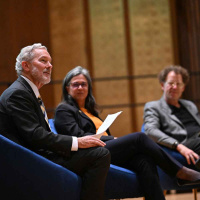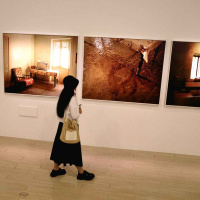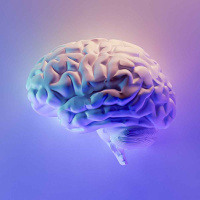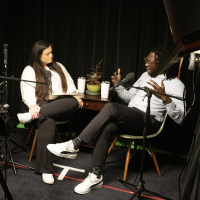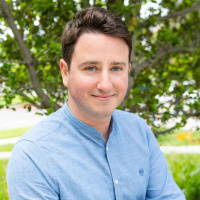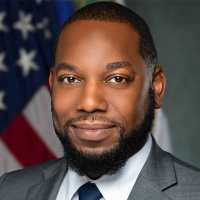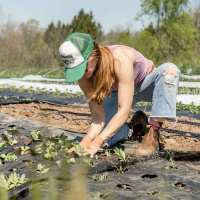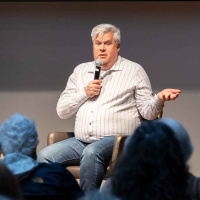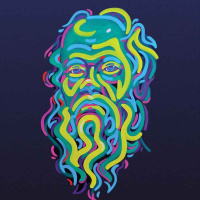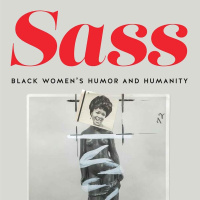Synopsis
A podcast that features lectures, conversations, discussions and presentations from UC Berkeley. It's managed by the Office of Communications and Public Affairs.
Episodes
-
How do we make better decisions? (revisiting)
26/12/2025 Duration: 01h05minToday we are revisiting a Berkeley Talks episode in which a cross-disciplinary panel of UC Berkeley professors, whose expertise ranges from political science to philosophy, discuss how they view decision-making from their respective fields, and how we can use these approaches to make better, more informed choices. Panelists include: Wes Holliday, professor of philosophy. Holliday studies group decision-making, including the best methods of voting, especially in the democratic context. Marika Landau-Wells, assistant professor of political science. Landau-Wells studies the effect that threat perception has on national security decision-making, and how some decisions we make to protect ourselves can endanger many others.Saul Perlmutter, Franklin W. and Karen Weber Dabby Professor of Physics and 2011 Nobel laureate. Perlmutter co-teaches a Big Ideas course, called Sense and Sensibility and Science, designed to equip students with basic tools to be better thinkers by ex
-
The Page Act and the making of racialized US immigration control
12/12/2025 Duration: 01h27minBefore there was the Chinese Exclusion Act, there was the Page Act. Passed in 1875 amid growing anti-Chinese sentiment in the 19th century, the Page Act was one of the first national immigration laws in the United States. It targeted several categories of people, including contract laborers from Asia, women brought in for sex work and certain convicted criminals. In practice, however, it functioned mainly to restrict Chinese and other Asian women from entering the country.“It had enormous implications for the issues of race, gender and labor in U.S. immigration history and Asian American history,” says UC Berkeley history professor Hidetaka Hirota, who moderated a campus discussion in April to mark the Page Act’s 150th anniversary.In this Berkeley Talks episode, a panel of Berkeley scholars unpack how the Page Act helped institutionalize racially targeted exclusion and gendered surveillance at the border, and how it laid the groundwork for the 1882 Chinese Exclusion Act and later immigration laws. They a
-
For Nobel laureate Randy Schekman, it began with pond scum and a toy microscope
28/11/2025 Duration: 01h19sWhen UC Berkeley Professor Randy Schekman was 12, he scooped up a jar of pond scum and examined it under his toy microscope.“I just could not believe the world that was revealed,” he said during a campus event earlier this month. “This complex set of creatures that you can't see with your naked eye, and yet are moving and somehow mechanically independent, and able to do amazing things. And this was so fascinating.”Schekman went on to become a professor of molecular and cell biology at Berkeley and win the Nobel Prize in Physiology or Medicine in 2013 for his discovery of how yeast membranes work. His research has led to advances in food and fuel production, as well as life-saving drugs and vaccines. In this Berkeley Talks episode, Schekman explains the molecular building blocks that define who we are, the cellular processes that drive health and illness, and how curiosity-driven research leads to revolutionary insights into disease and opens doors to new possibilities for medicine and human health.This l
-
The complicated role of media in motherhood
14/11/2025 Duration: 52minIn the early 20th century, prominent figures in psychology, psychiatry and pediatrics in the U.S. began to promote a new standard for mothers: that they should serve as a constant, unchanging and wholly nurturing presence in their children’s lives. It was the best way, they claimed, to raise healthy and successful children. This ideal marked a shift away from earlier traditions where caregiving was often distributed among extended family members, hired help and community. In her new book, Mother Media: Hot and Cool Parenting in the Twentieth Century, UC Berkeley associate professor Hannah Zeavin explores how the new ideal of constant mothering was advanced by the mind sciences during the rise of the nuclear family and became especially powerful for white, middle-class mothers.Yet this expectation was both unrealistic and deeply shaped by issues of race and class, says Zeavin, who spoke last month at a Berkeley Book Chats event hosted by the Townsend Center for the Humanities.As more mothers entered the w
-
Top Biden official calls for unity, ‘moral courage’ in public service
01/11/2025 Duration: 36minThe United States is in a moment like no other in recent history, says Deb Haaland, former President Joe Biden's secretary of the Interior Department from 2021 to 2025. Every day, she says, it seems a new pillar of the American government is under attack. But what makes this moment unique aren’t these crises themselves, but the attack on the idea that problems can be solved at all. “We face a creeping cynicism that suggests that our real enemy is our desire to make a difference,” she said during the keynote address at the Goldman School of Public Policy’s Annual Conference and Alumni Gathering in September. “We face attacks on the very idea of wanting to make things better. That's why the Goldman School of Public Policy is so vital. Without places like this, without people like those in this room today, America wouldn't have a prayer of meeting this moment.”In this Berkeley Talks episode, Haaland discusses how policy — not politics — is the only path to real change, and why we need a unified effort groun
-
How Berkeley became a powerhouse for innovation and startups
17/10/2025 Duration: 01h36sUC Berkeley is widely considered a leader in innovation and startups. Pitchbook university rankings from 2025 announced, for the third year in a row, that Berkeley graduates have founded more venture-backed companies than undergraduate alumni from any other university in the world. Some might wonder, says Chancellor Rich Lyons, if this entrepreneurial energy clashes with Berkeley’s tradition of top-tier research and teaching. But Lyons sees it differently: These forces fuel each other, combining to drive the campus’s ultimate goal of making a lasting difference in the world. It’s a dynamic duo, he says, that keeps the campus pushing boundaries and shaping the future. In this Berkeley Talks episode, a panel of prominent Berkeley faculty and an alum join Lyons to discuss how the campus’s startup culture has powered their work and encourages the next generation of scholars to grow their ideas. The panel, which took place on Oct. 6 during Homecoming weekend, includes: Ana Claudia Arias,
-
Long said to be ‘too big to fail,’ the ocean needs a new narrative
03/10/2025 Duration: 01h07minIn this Berkeley Talks episode, renowned marine ecologist Jane Lubchenco discusses how a persistent narrative that the ocean is “too big to fail” has led to its degradation. While many now believe its problems are “too big to fix,” Lubchenco explains why we need to embrace a new narrative: That it’s too central to our future to ignore.“There is a historic narrative about the ocean, one that has framed the way people have talked about the ocean and have treated the ocean for almost all of human history,” Lubchenko told the audience at a UC Berkeley event in March. “The ocean, for thousands and thousands of years, was seen as so immense, so endlessly bountiful that people thought it must be infinitely resilient and impossible to deplete or disrupt.”But now, she said, the impossible has happened — “it’s depleted, it’s disrupted, it’s polluted, it’s warmer, it’s more acidic, it’s deoxygenated" — and we need to create a new narrative, one that acknowledges that a healthy ocean is central to a just and prosperous f
-
Alva Noë on how art allows us to see everyday things anew
19/09/2025 Duration: 31minIn his 2023 book The Entanglement, UC Berkeley philosopher Alva Noë argues that human nature is not a fixed phenomenon, and that art acts as a kind of “strange tool” that actively changes us. “Life and art are entangled,” says Noë, who spoke about his research at a Berkeley event in June 2023. “To say that life and art are entangled is to say not only that we make art out of life, all the habits and systems and meanings and certainties, but that art then works these raw materials over — art works us over, art makes us new. Art makes us.”In this Berkeley Talks episode, Noë discusses how humans are in a constant state of becoming, and that art works to unveil us to ourselves in ways that empirical inquiry common in scientific fields cannot. By removing an object, like a photo, from its normal setting, he says, it allows us to reflect on what we normally take for granted about the object and presents an opportunity to make new meaning from it. “We are makers,” he continues. “We are put together, litera
-
How forgiveness changes you and your brain
05/09/2025 Duration: 01h02minAs the science director at UC Berkeley’s Greater Good Science Center, Emiliana Simon-Thomas thinks a lot about how prosocial emotions and behaviors — like compassion and gratitude — influence our well-being and society as a whole. And recently, she’s been more deeply exploring the effects of forgiveness. “Forgiveness is an idea that most people endorse, that most people feel is a virtue or the right thing to do, but can often be more challenging than we expect in actual day-to-day life,” Simon-Thomas said during a Berkeley event in July. Not only is it difficult to put into practice, she says, but it’s also hard to define — it’s often understood differently from person to person and culture to culture. In this Berkeley Talks episode, Simon-Thomas is joined in a conversation by child clinical psychologist Allison Briscoe-Smith, a senior fellow at the center, and clinical neuropsychologist Melike Fourie of the Neuroscience Institute at the University of Cape Town in South Africa. Together, they e
-
Nobel laureate Jennifer Doudna on CRISPR and the future of gene editing
22/08/2025 Duration: 50minFor UC Berkeley’s Jennifer Doudna, the revolutionary discovery of CRISPR-Cas9 gene editing began 15 years ago with a meeting at the campus’s Free Speech Movement Cafe. “This is a quintessential story about Berkeley,” begins Doudna, a professor of molecular and cell biology and of chemistry, in a lecture she gave on campus in April. “The research that I'll talk about today wouldn't have happened … if I had been working anywhere else. And that's because we have a really collaborative environment on our campus.”At the cafe, Doudna listened while a Berkeley colleague described a possible adaptive immune system in bacteria that helps them fight off viral infection. Doudna's lab went on to research the molecules involved, discovering a pathway that allows bacteria to "learn" about viruses, store the information and use it for protection.The scientists realized this same system could be used to trigger DNA repair in plant, animal and human cells, effectively allowing them to "rewrite the code of life." The
-
Berkeley scholars unpack what's at stake for U.S. democracy
08/08/2025 Duration: 01h01minEvery spring semester, UC Berkeley Assistant Professor Shereen Marisol Meraji teaches a class on race and journalism. In the course, she and her students explore how colonialism and the legacy of its systems — including forced displacement of Native tribes, slavery and Jim Crow — continue to affect us as a society, and how journalists can meaningfully report on race in America today.“It has led to persistent racial disparities in wealth, in education, housing, healthcare, in policing and incarceration,” said Meraji, who leads the audio program at Berkeley’s Graduate School of Journalism. “I firmly believe that you can't meaningfully report on any of those issues, here in the United States, without an understanding of how race operates.”When President Trump signed a surge of executive orders in January 2025, many that directly intersect with race, Meraji suggested that her students interview experts at Berkeley to help make sense of these new anti-DEI policies, immigration enforcement changes and regulatory ro
-
Economist Gabriel Zucman on the benefits of a (modest) billionaire tax
25/07/2025 Duration: 01h14minIn this Berkeley Talks episode, economist Gabriel Zucman discusses how wealth inequality and billionaire wealth has soared in recent decades, prompting the need for a global minimum tax of 2% on billionaires. “The key benefit of a global minimum tax on billionaires is not only that it would generate substantial revenue for governments worldwide — about $250 billion a year — but also, and maybe most importantly, that it would restore a sense of fairness,” says Zucman, a UC Berkeley summer research professor and director of the Stone Center on Wealth and Income Inequality’s Summer Institute. Today, billionaires pay only about 0.2% of their wealth in taxes, says Zucman, because they often structure their wealth to minimize taxable income through control over corporate dividends, delaying capital gains and using holding company structures, among other methods. The 2% tax rate proposal is a modest one, he argues, and would merely ensure that billionaires, comprising about 3,000 families around the world,
-
Ezra Klein on building the things we need for the future we want (revisiting)
11/07/2025 Duration: 01h35minToday we are revisiting an October 2023 Berkeley Talks episode in which Ezra Klein, a New York Times columnist and host of the podcast The Ezra Klein Show, discusses the difficulties liberal governments encounter when working to build real things in the real world. He joins in a conversation with Amy Lerman, a UC Berkeley political scientist and director of the Possibility Lab.“To have the future we want, we need to build and invent more of the things that we need,” begins Klein, who has since published the 2025 book Abundance with co-author Derek Thompson. “It’s so stupidly simple, so obvious, that it seems weird there could be any need to write articles or podcasts or truly, God forbid, a book about it.” “And yet,” he continues, “the story of America in the 21st century — more than that, the story of liberalism, and particularly California liberalism — is a story of chosen scarcity.” Klein argues that while liberal governments are ambitious in their aims, like addressing climate change, building a
-
How the tobacco industry drove the rise of ultra-processed foods
27/06/2025 Duration: 57minIn the early 1960s, R.J. Reynolds, one of the largest and most profitable tobacco companies in the U.S. at the time, wanted to diversify its business. Its marketing strategies had been highly successful in selling its top brands, like Camel, Winston and Salem cigarettes, and executives thought, Why not apply the same strategies to, say, the food industry?So in 1963, R.J. Reynolds acquired Hawaiian Punch. It marked the beginning of the tobacco industry’s entry into the food sector. In the following decades, R.J. Reynolds and Philip Morris expanded aggressively into the food industry, acquiring major brands, like Del Monte, Nabisco, General Foods, Kraft and 7UP, where they produced hyperpalatable, chemically-engineered foods now known as ultra-processed foods, or UPFs. These products were marketed especially to children and other vulnerable groups. In Berkeley Talks episode 229, Laura Schmidt, a professor of health policy in the School of Medicine at UC San Francisco, discusses how ultra-processed foo
-
Energy justice expert on his pursuit for affordable and clean energy for all
13/06/2025 Duration: 52minIn Berkeley Talks episode 228, Tony Reames, a professor of environmental justice at the University of Michigan, discusses how the U.S. energy system has persistently harmed marginalized communities, a result of legacies of government-sanctioned policies, like redlining, land theft and resource extraction. He goes on to emphasize the need for intentional efforts to undo these harms. “When we think about energy justice, the goal is to achieve equity in both the social and economic participation in our energy system,” says Reames, who served as deputy director for energy justice at the U.S. Department of Energy during the Biden-Harris administration.In 2015, he says, some 14% of U.S. households couldn’t afford their energy bills, and 21% had to decide between buying food and medicine or paying their energy bills. Eleven percent were keeping their homes at an unhealthy temperature, either too hot or too cold, because they couldn’t afford energy or they couldn’t repair their HVAC system. Higher proportions of
-
Feeding the world without ‘eating the earth’
30/05/2025 Duration: 01h14minBy 2050, the global population is expected to reach about 10 billion people. That means we need to find a way to feed nearly 2 billion more mouths in the next 25 years. Industrial farming practices have already destroyed countless natural ecosystems, and experts say that expanding farmland even further would have devastating consequences for the planet. In Berkeley Talks episode 227, UC Berkeley Professor Timothy Bowles and journalist Michael Grunwald discuss the impact of our current agricultural methods and debate the ways we can ramp up food production without causing more harm to the environment. “Agriculture is eating the earth,” says Grunwald, author of the forthcoming book We Are Eating the Earth: The Race to Fix Our Food System and Save Our Climate. Farmland, he says, now covers two of every five acres on the planet, “and those are acres that used to be forest and wetlands and savannas that stored a lot of carbon and sheltered a lot of biodiversity.” In order to avoid further dest
-
Daniel Handler (aka Lemony Snicket) on reading the authors you want to write like
16/05/2025 Duration: 56minIt took nearly six years for bestselling author Daniel Handler to sell his first book, a satirical novel called The Basic Eight. When his agent sold it in 1998, it was “for the least amount she had ever negotiated for,” laughed Handler, who spoke at a UC Berkeley event earlier this month. More than two decades later, Handler has published seven novels. Under his pen name Lemony Snicket, he has written dozens of books for children, including the 13-volume series A Series of Unfortunate Events. His most recent book, And Then? And Then? What else?, is part memoir, part inspiration for aspiring writers. Handler was the keynote speaker at the Magnes Collection of Jewish Art and Life’s inaugural Jewish Arts and Bookfest, a day of events held on May 4 in celebration of Jewish American Heritage Month. Throughout the day, artists and authors came together for panel discussions, workshops and other programming that showcased the Jewish experience through art, culture and storytelling. In epis
-
In 1970, one in five Americans moved every year. Now it’s one in 13. What changed?
02/05/2025 Duration: 01h32minIn Berkeley Talks episode 225, The Atlantic journalists Yoni Appelbaum and Jerusalem Demsas discuss the decline of housing mobility in the United States and its impact on economic opportunity in the country. Appelbaum, author of the 2025 book Stuck: How the Privileged and the Propertied Broke the Engine of American Opportunity, began by tracing the history of housing mobility in the U.S. and its rapid decline in recent decades. He noted that in the 19th century, one out of three Americans moved to a new residence every year, and as late as 1970, one in five did. Today, only one in 13 people in the U.S. pack up their things and find a new place to live on an annual basis. “These constant moves in America, made possible by the constant construction of new housing, created a new kind of social order,” said Appelbaum, and most people “ended up better off for it.” The sharp decline in residential relocation, he said, caused largely by rising housing costs and restrictive zoning, is a major driver of
-
The case for a philosophical life, with Agnes Collard and Judith Butler
18/04/2025 Duration: 01h35minThe ancient Greek philosopher Socrates is considered the father of Western philosophy, one whose most famous ideas have all but risen to the level of pop culture. We parrot his claim that “the unexamined life is not worth living.” His name has been invoked by politicians to bolster their stance against “cancel culture.” There’s even an AI chat app modeled after Socrates that promises intelligent conversations. But what exactly were Socrates’ philosophical views? We may be quick to reference his name, but if asked, many of us would likely be hard-pressed to give a thorough account of what he actually believed. In Berkeley Talks episode 224, Agnes Collard, an associate professor of philosophy at the University of Chicago and author of the 2025 book Open Socrates: The Case for a Philosophical Life, joins UC Berkeley’s Judith Butler, a Distinguished Professor in the Graduate School and a leading philosopher and theorist, for a conversation. Together, they dive deep into Socrates’ work and beli
-
J Finley on how Black women use sass to claim their humanity
04/04/2025 Duration: 01h23minWhen J Finley arrived at UC Berkeley as a graduate student in 2006, she planned on studying reparations and the legacy of slavery. But after a fellowship in South Africa, where she studied the Zulu language and culture, Finley says she realized Black people were never going to get reparations. Switching gears, she started thinking: “How else do Black people make do? Well, we laugh.”In Berkeley Talks episode 223, Finley, an associate professor of Africana studies at Pomona College who earned her master’s degree and Ph.D. from UC Berkeley in 2008 and 2012, discusses her 2024 book Sass: Black Women’s Humor and Humanity. During the talk, Finley shares how Black women have used and continue to use humor and, more specifically, sass, to speak back to power and assert their own humanity. Black women’s humor, she contends, is “rooted in the racist, patriarchal and, many times, degrading conditions from which it developed” and is “an embodied expression of resilience at the moment of crisis that has come to be th






